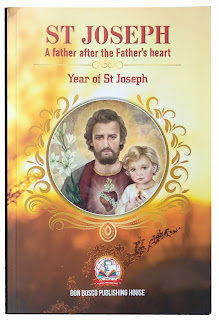Making Moral Decisions (Book Review)
Making Moral Decisions, Edward Stevens, New York : Paulist Press, 1981, pp. 112,
$4.95
We are constantly facing moral issues. We make moral choices
ever so often. People often look for a guide to help them navigate the various
moral choices they face, especially the challenging ones. This book is an
attempt to answer that need. Even though the book is small, it covers a number
of pressing moral issues. If one is looking for answers then this is not the
book to look in. The author aims to stimulate thought and not to provide
readymade answers, if there are any whatsoever.
The author uses philosophy and not theology to explore and
examine the issues. Religion, in the past had served as the determiner and
guardian of morals. A religion-based morality can be extremely useful for the
stability of a society. But religion is no more the dominant force in our
increasingly post-modern world. It cannot supply moral answers in today’s
pluralistic world. Moral codes are human constructs. We are moral beings and
can with our reason and freedom design a moral code. The author states that
there are no absolute answers to the moral problems. There are however,
absolute values or principles which direct our lives. Caution must be taken not
to assume that just because the principles are absolute that the conclusions
are too.
The book is divided into five parts. The first part is
‘Morality and Human Nature’. In this section, the author addresses questions
about the connection between morality and human life. The notion of freedom is
explored as also is natural law. The second part is dedicated to questions on
war. Is it moral? Is the conscientious objector failing in his duty? What about
civil disobedience and violent protest? The third part talks about the morality
of actions connected to life and death like abortion, suicide, new baby-making
techniques and euthanasia. The fourth part deals with ‘Marriage and Sexuality’.
The questions addressed under this section are: Is marriage too personal to be
defined? Is divorce ever intelligent and moral? What can be said of trial
marriages and live-ins? Homosexuality and birth control are also addressed. The
last part talks about ‘Social Justice’. Gender-differences, individual-society
relations and global justice are touched upon.
The author has done well to present so many issues lucidly.
He begins each presentation with a few quotes. After stating the problem he
presents arguments for both sides, the pros and cons. He indicates the issues
left to be resolved and presents his opinion. Each presentation concludes with
some suggestions for further reading into the matter. This method helps the
reader understand and develop his/her own opinion. There are no dogmatic claims
made and the author discourages the reader from trying to give absolute
solutions. He emphasizes the open-endedness of moral questions but at the same
time is careful not to fall into the trap of relativism. This book will help
all those interested in moral questions, not so much in terms of acquiring
ammunition to argue for or against, but to reflect objectively on an issue and
to develop and opinion.


Comments
Post a Comment